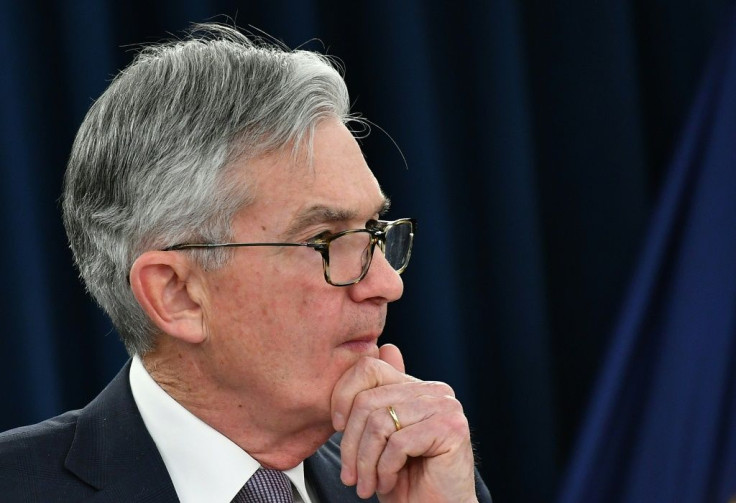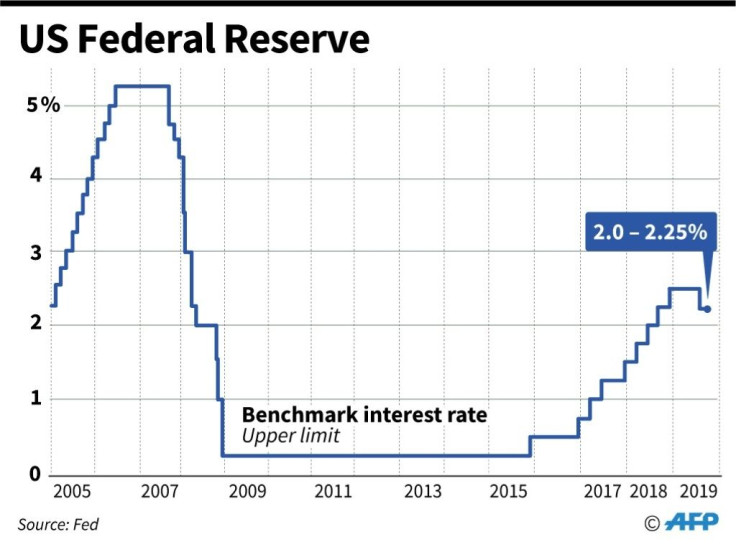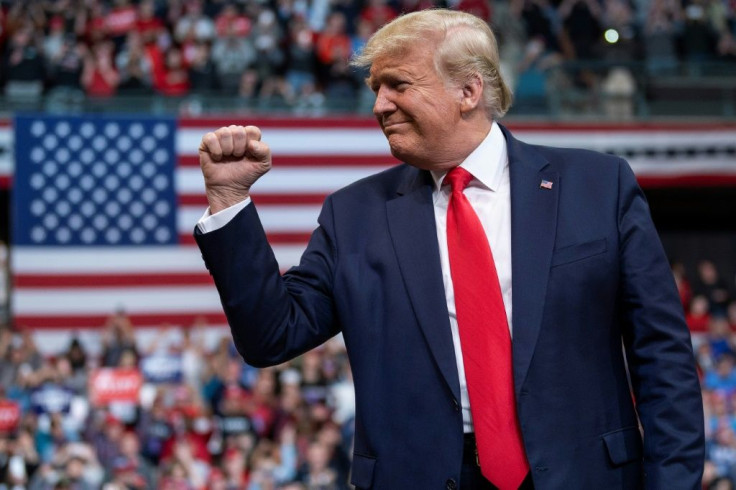Fed 'Closely Monitoring' Global Risks From Coronavirus: Powell

The US central bank is keeping watch for any impact from the virus outbreak in China that could spread beyond its borders, Federal Reserve Chairman Jerome Powell said Tuesday.
With the death toll now surpassing 1,000, transportation has been cut off and businesses shuttered, which can delay shipments of key parts to foreign manufacturers.
The Fed is "closely monitoring the emergence of the coronavirus, which could lead to disruptions in China that spill over to the rest of the global economy," Powell said in testimony to Congress.
In his semi-annual appearance before the House Financial Services Committee to present a report on monetary policy, Powell was fairly upbeat about the US economy, citing solid job gains and continued growth.
However, he cautioned that risks remain.
"We find the US economy in a very good place, performing well," the Fed chief told legislators, but into that rosy picture comes the virus outbreak.
The situation surely will hit the economy of China along with its near neighbors and trading partners in Asia and Europe, but the question is whether it will have a "material" and "persistent" impact on the US and global economies.
"We know that there will be some, very likely some effects on the United States (but) I think it's just too early to say," Powell said, adding "we have to resist the temptation to speculate on this."
Nicholas R. Lardy, a China scholar at the Peterson Institute for International Economics, said the country could see first quarter growth slow sharply to 4 percent, but "the adverse effect on annual growth will be much smaller."
But it still creates "a measurable headwind for the global economy," he said.

As he was testifying, President Donald Trump launched a new attack on the Fed chairman.
Wall Street advanced early Tuesday, with the benchmark index Dow Jones Industrial Average beating its all-time high before retreating. Trump blamed Powell.
"When Jerome Powell started his testimony today, the Dow was up 125, & heading higher. As he spoke it drifted steadily downward, as usual, and is now at -15," Trump tweeted.

Trump has repeatedly berated and personally attacked Powell, who he has called "clueless" and chastised for not lowering interest rates to supercharge the economy.
"Germany & other countries get paid to borrow money. We are more prime, but Fed Rate is too high, Dollar tough on exports," Trump said on Twitter.
However, Powell repeated the Fed's current monetary policy stance "will likely remain appropriate" and only change if "developments emerge that cause a material reassessment" of the outlook for the economy.
In 2019, "sluggish growth abroad and trade developments" -- like Trump's conflict with China that ratcheted up tariffs on hundreds of billions of dollars in products -- "weighed on activity at the nation's factories," Powell said.
That uncertainty about global and domestic growth prompted the Fed to lower the benchmark lending rate three times last year to help shore up the economy, which is now in a record 11th year of growth.
But in January, Trump reached a truce with China, which stopped the escalation but kept most tariffs in place, and also signed a revised continental free trade pact with Canada and Mexico.
As a result, "Some of the uncertainties around trade have diminished recently," Powell said.
The Fed chief renewed his argument that officials who control the government's purse strings have a role to play in supporting the economy as well as central bankers, especially in the event of another downturn.
Speaking on the day after Trump presented his $4.8 trillion budget proposal to Congress that has large deficits continuing for at least 15 years, Powell again argued for a "more sustainable budget."
With the key US lending rate so low -- 1.5-1.75 percent -- the Fed will have little room to maneuver, which means "it would be important for fiscal policy to help support the economy if it weakens."
"Putting the federal budget on a sustainable path when the economy is strong would help ensure that policymakers have the space to use fiscal policy to assist in stabilizing the economy during a downturn," he said in prepared remarks.
"A more sustainable federal budget could also support the economy's growth over the long term."
The US budget deficit is expected to breach $1 trillion this year.
© Copyright AFP 2024. All rights reserved.





















